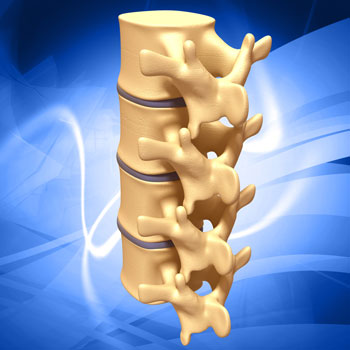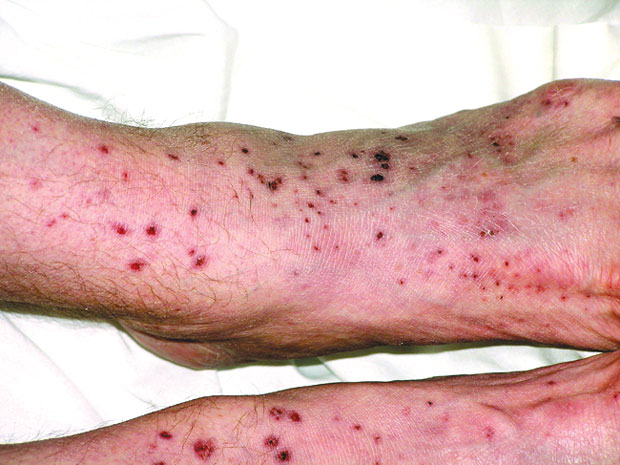Q&A: How to fight impostor phenomenon
High-achieving individuals, like physicians, often think they don't deserve their success, and this can lead to higher rates of burnout.
Physicians tend to be high performers, but many think they don't deserve their success. That can lead to higher rates of burnout, a recent study found.
In the November 2022 Mayo Clinic Proceedings, researchers compared rates of impostor phenomenon, or the belief that one's success is undeserved rather than a result of hard work and ability, in a survey of 3,116 U.S. physicians and a probability-based sample of the U.S. population. Physicians were more likely than those in other professions to report impostor phenomenon, and higher rates were associated with higher odds for burnout and suicidal ideation. In a multivariable analysis, physicians were also more likely to endorse the statement, “I am disappointed at times in my present accomplishments and think I should have accomplished more.”
Study coauthor Colin P. West, MD, PhD, FACP, a professor of medicine at Mayo Clinic in Rochester, Minn., recently spoke to ACP Internist about the findings.
Q: What prompted this study?
A: We've been studying burnout for two decades, and that's led to an explosion of interest and understanding of its prevalence and its impact on physicians and the medical system as a whole. We continue to explore how burnout relates to many other factors and experiences. We've looked at things like burnout and other mental health diagnoses such as depression or suicidal ideation, and we and colleagues at other institutions have looked at burnout and self-valuation. This was really an extension of that interest. The idea that [impostor phenomenon] can affect high-achieving individuals, like physicians, who commonly experience feelings of doubt and guilt and uncertainty in their work, and how that might relate to other aspects of distress, like burnout, was something that we thought would be of interest.
Q: The study mentions low self-valuation as a potential reason for impostor phenomenon. Can you describe that concept?
A: Low self-valuation is this idea that people are very hard on themselves and value their own needs less than the needs of others. The challenge in medicine, of course, is this is part of our social contract, this is part of our professionalism—that the needs of our patients come first. That can be internalized so that it becomes something that's true in every aspect of our lives, where even outside of our interactions with patients, we don't do as well in our own self-care efforts.
Physicians are among the most self-critical people out there. That can be constructive sometimes, when it really challenges us to always be striving for the best on behalf of our patients, but it can be destructive as well, when we never give ourselves the grace of saying, “Oh, yeah, you actually do need to take a breath, you actually do need to nurture your own life and your own interests and the things that are important to you, as a human being who deserves to have those things be prioritized.” That's where low self-valuation comes into this.
Q: Your study found that impostor phenomenon was more common in some groups, including women. Do you have any thoughts on why and whether other groups might be at risk?
A: It's a great example of hypothesis-generating findings. Something we write about in the paper is this idea that impostor phenomenon can be thought about in a couple of different ways. One is intrinsically, within each individual, is there a tendency to think maybe you don't belong, and do we bring that as part of our individual personality to our life experiences? But the other part of this that is really important not to lose sight of is that there are also messages that come from outside the individual. What is it about the environments within which women are working that is sending them the message over their entire lives and their careers that maybe they don't belong, maybe they're not here on their own merits? Then we start overlapping into underrepresentation and discrimination and bias, and that leads us to ask what we know about other groups that get messages, culturally and structurally, that they are “less than.”
We didn't have a large enough sample size in this particular study to provide meaningful insights on racial and ethnic groups, for example. That's an important study that needs to be done. My hypothesis is that much like we saw for women, other disadvantaged and underrepresented groups historically in medicine are going to have the same issues, because they've been told for decades that they're less than, that they don't belong, and that becomes internalized. That then speaks to a responsibility across medicine for us to reverse that.
Q: How can medicine as whole begin to address impostor phenomenon?
A: We need to be aware of how we think about ourselves and how we think about our colleagues so that we stop putting ourselves down, stop putting those around us down, and turn that into a shared support environment, where in our local spheres of influence, we don't tolerate dragging people, and when we see other people tearing others down, we don't accept it. We don't just stand idly by. That's one broad approach to how we try to solve this idea of people not feeling like they belong, like they're just waiting to be found out. We need to help people acknowledge that lots of people feel this way, and we need to support each other collectively, because we need it, and our patients need it. We're not at our best when we're distracted by these feelings, and we need people to be able to be their very best in medicine for their patients.
Q: Are medical schools starting to address this issue more systemically?
A: There's a lot of history in medicine of not acknowledging that we're human, that we are going to deal with difficult situations, and that they're going to be stressful. The historical training mindset was along the lines of, you have to basically put on a stone face and not let it get to your core. We're increasingly understanding that that is counterproductive. You're going to be affected by these feelings in medicine at some point in your career, no matter who you are, and hiding them, suppressing them, walling them off like an abscess is not healthy. By having more open discussions about these issues in medical school, in residency training, even in practice, we normalize these feelings, we destigmatize these feelings. They become OK to talk about.
By talking about this and realizing that everyone is in it together and should support each other, it creates a team that shores each other up for what is, no question, a demanding and stressful career. That's the kind of mindset I see medical schools starting to shift more to: a team-based, community-oriented kind of learning environment. But we have such a long way to go, and there are still people who get left behind in that or are uncomfortable trusting that that openness about what they're feeling will truly be honored as something that will be used to support as opposed to harm them.
Q: How can individuals guard against impostor phenomenon?
A: One of the first things that I recommend to people, even when I'm talking about burnout and distress more generally, is to honestly take stock of your own experiences. I talk with residents sometimes who may be struggling with feeling like everyone else seems so accomplished and knows the answers on rounds while they are scrambling and always feel like they're a step behind. To me, that's the beginning of impostor phenomenon, this feeling of “Oh, I'm not as good as everybody else. I don't belong here.”
What I ask residents or students to do in those cases is step back. First of all, don't lose sight of what you have accomplished. Think about what being a physician says about your academic experiences, about your service in the community, all of the things we select people for. In medicine, we have to give ourselves the permission to appreciate our accomplishments in a way that sometimes I think we resist, because it almost feels arrogant, but it is part of self-worth. Step back and think, “OK, let me remind myself of my credentials. What have I accomplished? What have I overcome to be here? What challenges make me proud?” It's OK to be proud of those things.
So many of us are fearful of being viewed as arrogant that we are self-deprecating to a harmful fault. I think there's a balance. I don't think people should tell themselves that they're great at things that they're not, but what I'm advocating for is honest self-appraisal. A lot of this is about being able, individually, to listen to that internal signal of strength.
We also need to have the support of our systems around us. When we see our colleagues feeling a bit low, we need to remind each other that “Hey, you know what, look what you've accomplished already. Pretty cool. I admire you and your commitment. I'm here for you.” If we do that for each other, I think that's a big step forward toward building supportive cultures in medical training and practice, which would be incredibly helpful.
Q: Are there other take-home messages from your study?
A: The first point is there's so much more that we have to learn about how all of these different aspects of human experience and physician experience interrelate, and this is just one more small step to building that deeper understanding. Our paper identifies relationships that are important, and they should serve as a launching point for further research to dig into what other underrepresented groups experience, and which solutions move from being plausible to actually working.
The second is just an emphasis on, as we've proposed for physician well-being more broadly, really taking responsibility from a system standpoint, from an organizational standpoint, and not putting the solution to impostor phenomenon on the individual. It's just not helpful to tell the individual without system support, “Hey, just think more highly of yourself.” That can make them feel good for five minutes, and then they get back out into their practices, onto the wards, into their lecture sessions, and they start feeling pummeled and doubtful again. We have to have learning and working environments within which people can thrive, and that sense of community, that sense of mutual support for growth, is something that we really have to challenge ourselves to foster, so that it becomes part of our professional norms.




